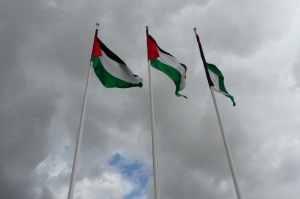 I’ve been doing bits of reading on migration for university work and one of the most interesting that came to the surface is how flawed our perceptions are of population movements.
I’ve been doing bits of reading on migration for university work and one of the most interesting that came to the surface is how flawed our perceptions are of population movements.
Especially in the west, we tend to think that migrants are swamping our oasis of calm and stealing our resources. That more and more are coming every year and soon there will be space for no-one. In reality, almost of all of migration occurs between developing countries and only around 3% actually make into the developing world. Clearly some where along the way, there has been some serious miscommunication.
Talking of communication, I also stumbled across an interview with UK Photographer Caroline Irby on Immigrant Children by the brilliant Qiana Mestrich of the blog Dodge & Burn: Diversity in Photography.
Here are some stand out bits:
CI: Of the estimated 565,000 migrants who arrive in the UK each year, 26,000 of them are children. The numbers are often analyzed in the media, but for every number there’s a story. There are stories dancing around in playgrounds across the country and they are seldom told. I learned, from talking to all these children, that they rarely speak about where they have come from or what they’ve been through. And I think we should take the opportunity to ask and listen to them: we can learn a lot when we do…

QM: These children all come from different countries each with their own experiences. Is there anything that you’ve found they have in common?
CI: With most of the children who are here indefinitely, I felt an undertow of nostalgia, fed not so much by the desire to return home as by the impossibility of it, because the home they remember has changed, and they have changed too.
However well integrated the children are, almost all fantasize about returning to the countries they have left, but when questioned on this, most told me that returning for a holiday is enough – that they no longer fit in the place they have come from, that the UK is now home.
Something else I found these children often shared was an acute self-awareness: having experienced life in more than one country; their vision is already global. In the process of moving and adapting to another culture they have had to understand a lot about themselves and where they are from.
There were many recurrent themes in what the children said in their interviews but perhaps the most consistent was that they miss their Grandmas. They miss their friends, their food, their animals and homes, but it was almost always the Grandmas they said they miss most.
Aaawwwhhhhh. That is simultaneously super sad and super cute.


 I’ve been doing bits of reading on migration for university work and one of the most interesting that came to the surface is how flawed our perceptions are of population movements.
I’ve been doing bits of reading on migration for university work and one of the most interesting that came to the surface is how flawed our perceptions are of population movements.




